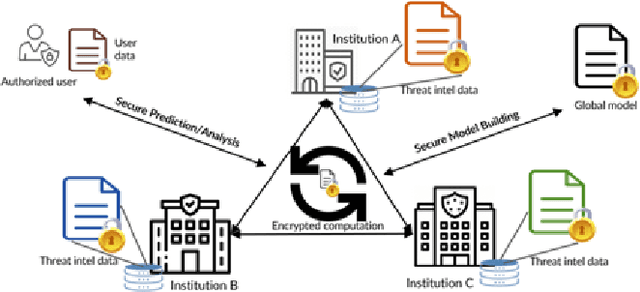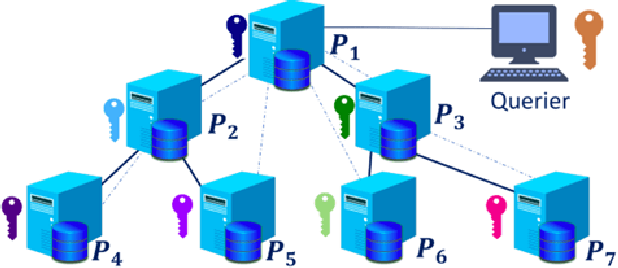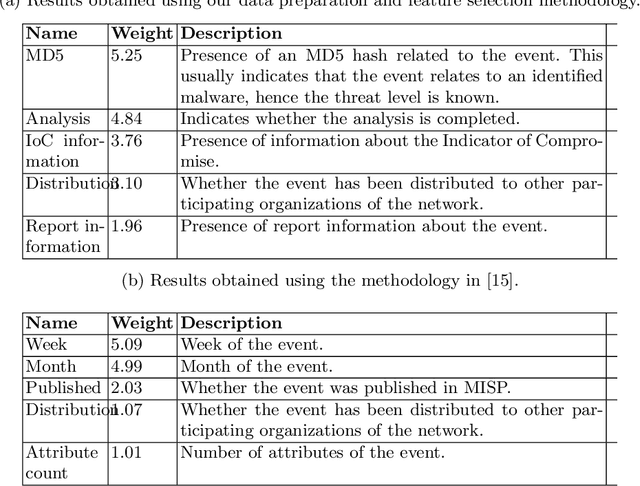Jean-Philippe Bossuat
Orchestrating Collaborative Cybersecurity: A Secure Framework for Distributed Privacy-Preserving Threat Intelligence Sharing
Sep 06, 2022



Abstract:Cyber Threat Intelligence (CTI) sharing is an important activity to reduce information asymmetries between attackers and defenders. However, this activity presents challenges due to the tension between data sharing and confidentiality, that result in information retention often leading to a free-rider problem. Therefore, the information that is shared represents only the tip of the iceberg. Current literature assumes access to centralized databases containing all the information, but this is not always feasible, due to the aforementioned tension. This results in unbalanced or incomplete datasets, requiring the use of techniques to expand them; we show how these techniques lead to biased results and misleading performance expectations. We propose a novel framework for extracting CTI from distributed data on incidents, vulnerabilities and indicators of compromise, and demonstrate its use in several practical scenarios, in conjunction with the Malware Information Sharing Platforms (MISP). Policy implications for CTI sharing are presented and discussed. The proposed system relies on an efficient combination of privacy enhancing technologies and federated processing. This lets organizations stay in control of their CTI and minimize the risks of exposure or leakage, while enabling the benefits of sharing, more accurate and representative results, and more effective predictive and preventive defenses.
POSEIDON: Privacy-Preserving Federated Neural Network Learning
Sep 30, 2020



Abstract:In this paper, we address the problem of privacy-preserving training and evaluation of neural networks in an $N$-party, federated learning setting. We propose a novel system, POSEIDON, the first of its kind in the regime of privacy-preserving neural network training, employing multiparty lattice-based cryptography and preserving the confidentiality of the training data, the model, and the evaluation data, under a passive-adversary model and collusions between up to $N-1$ parties. To efficiently execute the secure backpropagation algorithm for training neural networks, we provide a generic packing approach that enables Single Instruction, Multiple Data (SIMD) operations on encrypted data. We also introduce arbitrary linear transformations within the cryptographic bootstrapping operation, optimizing the costly cryptographic computations over the parties, and we define a constrained optimization problem for choosing the cryptographic parameters. Our experimental results show that POSEIDON achieves accuracy similar to centralized or decentralized non-private approaches and that its computation and communication overhead scales linearly with the number of parties. POSEIDON trains a 3-layer neural network on the MNIST dataset with 784 features and 60K samples distributed among 10 parties in less than 2 hours.
 Add to Chrome
Add to Chrome Add to Firefox
Add to Firefox Add to Edge
Add to Edge